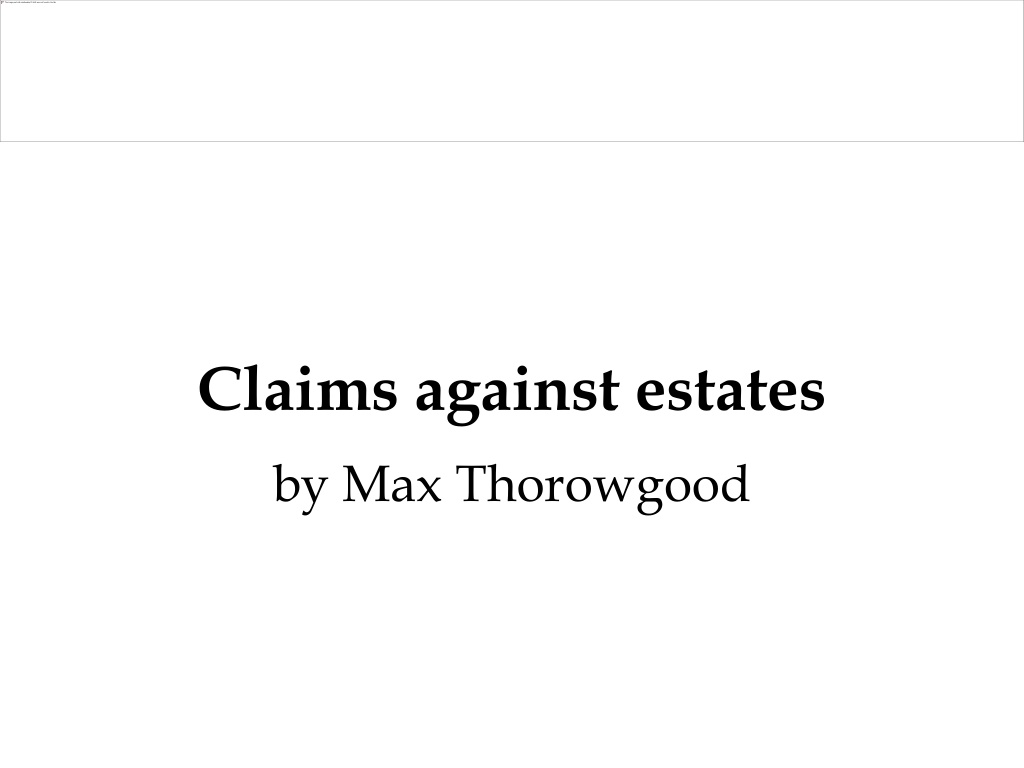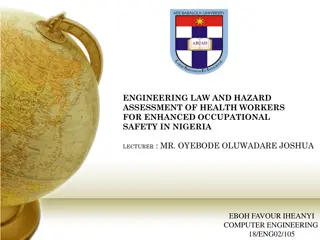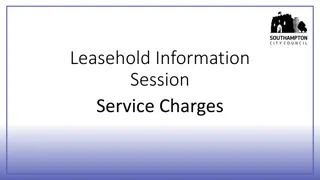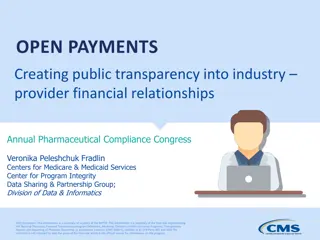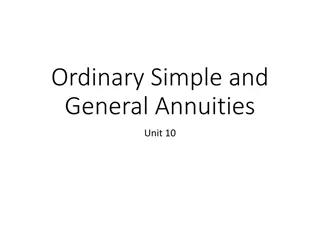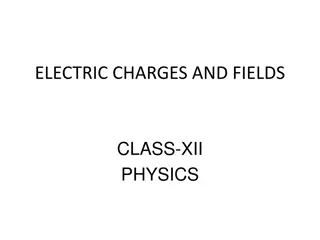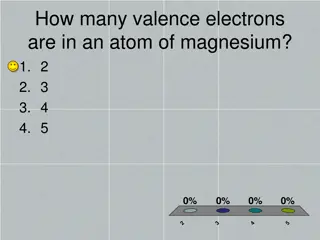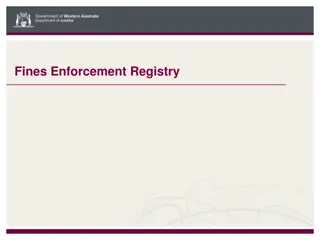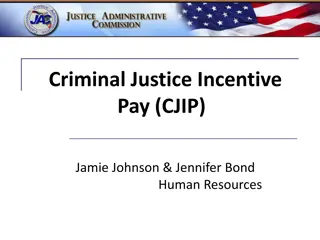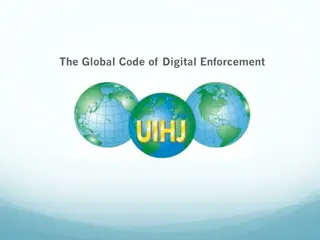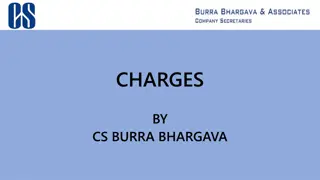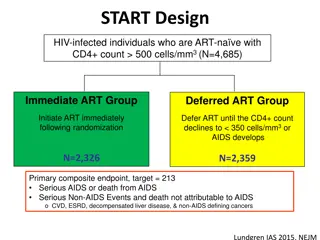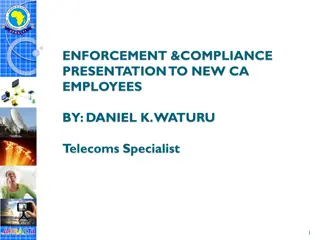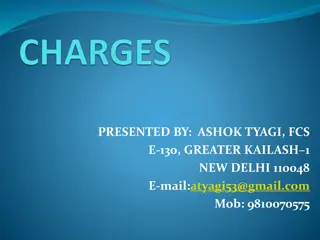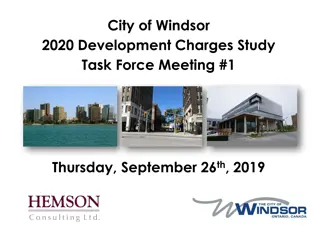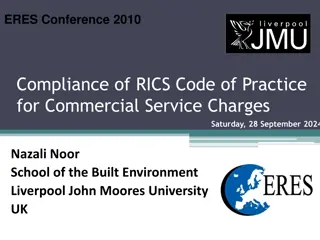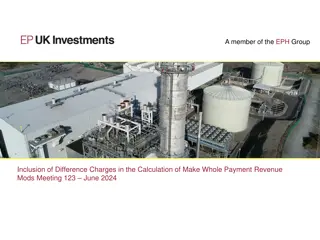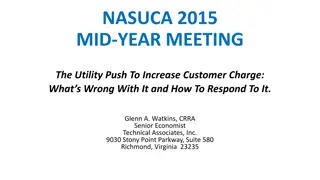Understanding Care Act 2014: Charges, Deferred Payments, and Enforcement
Explore the key provisions of the Care Act 2014 regarding charges, entitlements, deferred payment agreements, adequate security, registration of charges, and enforcement procedures in cases where no deferred payment agreement is in place. Learn about the conditions under which local authorities are entitled to charge individuals, offer deferred payment agreements, and recover debts in accordance with the regulations.
Download Presentation

Please find below an Image/Link to download the presentation.
The content on the website is provided AS IS for your information and personal use only. It may not be sold, licensed, or shared on other websites without obtaining consent from the author. Download presentation by click this link. If you encounter any issues during the download, it is possible that the publisher has removed the file from their server.
E N D
Presentation Transcript
Claims against estates by Max Thorowgood
Entitlement to charge under Care Act 2014 - Section 14 LA entitled to charge: For meeting needs For making arrangements to meet needs Unless: Payments have already exceeded cap Payment of the charge would leave the person with less than the prescribed amount of their income
Deferred payment agreements ss. 35 & 36 Care and Support (Deferred Payment) Regulations 2014 Local authority must offer such an agreement if: the local authority to make the arrangements for his residential care (thereby including the self-funder); legal or beneficial interest in a property which is his main or only home and which is not disregarded in the financial assessment; has capital (other than the interest in the property) which does not exceed the financial limit; and, is able to provide adequate security for the amount to be deferred. residential care is provided by the local authority or could have asked
Adequate security Charge over the legal or beneficial interest in the only or main residence Guarantee from a third party Or such other security as the LA may consider sufficient Written consent from anyone who has an interest and whose interest might prevent the LA from enforcing to: The creation of the charge That charge having priority to their interest
Registration of Charges Land Registry Practice Guide 19 @ 8.22 Sole beneficial owner: notice or charge Tenants in common: Form A Joint tenants: Form MM Floating charge register early.
Enforcement where there is no deferred payment agreement s. 69 Any sum in respect of which LA entitled to charge is a debt Not enforceable where a DPA could have been offered unless: LA has offered DPA The adult has refused 6 year limitation running from the date on which the debt fell due. Regs may specify, otherwise date of demand.
Enforcement where there is no deferred payment agreement s. 69 Right of recovery against a person who misrepresents of fails to disclose a material fact. Includes any person Extends to expenditure incurred as a consequence of the misrepresentation And sums which would otherwise have been recoverable
Anti-avoidance s. 70 Conditions for recovery from transferee: Transfer of asset Intention to avoid charges Transaction at undervalue Liability is for the difference between the amount charged and the amount which would have been charged, limited to value of asset. Apportioned rateably in case of multiple transferees
Claims Annex D of the guidance deals with the recovery of debts. It sets out circumstances in which the local authority should consider writing off debts. These include: where the debt is small and the cost of recovery is disproportionate; the impact of recovering the debt would adversely affect the well-being of the person receiving the care and support; and, the person or their representative could not reasonably have been aware that the asset in question needed to be included in the financial assessment.
Enforcement Application for an interim charging order. Register the interim charging order. Apply to have order made absolute. Very limited grounds for resistance once judgment entered. Apply early to protect asset.
CPR 19.8 Grant of representation: must sue the representatives as such No grant: Claimant must apply for a person to represent the estate. Court may appoint anyone but is likely, save in straight-forward circumstances to require a grant to be taken.
Unsatisfactory representative s. 50 Administration of Justice Act 1985 Court has power to remove some or all of the representatives. High threshold: fraud or dishonesty, serious maladministration; or stymieing progress.
Unproven will Citation of executor to take a grant by a person having an inferior right: Residuary legatee holding in trust Residuary legatees including those with a life interest Their personal representatives A specific legatee or a creditor
Intestate and solvent Clear off all those having a superior right to a grant by citation: Spouse Issue Parents Brothers and sisters Remoter relatives The Crown bona vacantia
Insolvent estates If the estate is or may be insolvent it must be administered pursuant to the Administration of Insolvent Estates of Deceased Persons Order 1986/1999 Administration by the representative in accordance with the order Administration action Administration by a trustee in bankruptcy under insolvency act: Easier to get order for sale Set aside rights of surviving joint tenants
Intermeddling Doing acts pertaining to the administration of the estate without taking a grant. Cite the intermeddler to take a grant Apply for them to be passed over under s. 116 Senior Courts Act 1981
Process of citation Object of citation is to explain the nature of the interests of the citor and citee(s): Draft citation and affidavit submitted to Probate Registry for approval Clean drafts submitted. Caveat entered Advertisements lodged Appearance grant to citee or s. 116 Non-appearance grant to citor
Claims against personal representatives S. 28 Administration of Estates Act 1925: Claims against representatives by unpaid creditors who have paid away the assets of the estate whether lawfully or otherwise. S. 27 Trustee Act 1925: Protection of representative by advertisement.
Problem 50,000.00 fees due and owing Property in sole name of the deceased Mortgage but no HASSASSA charge registered Son of deceased answering correspondence addressed to the personal representative No grant of representation taken
Solutions Declare a charge Register it Bring proceedings for possession Application under 19.8(2)(b)(ii) for son to be appointed as representative Cite son to take grant
Problem 100,000.00 fees due and owing Property valued at 200,000.00 in joint names of the deceased and son HASSASSA charge in form MM registered Son of deceased answering correspondence addressed to the personal representative at the property Daughter of deceased point of contact for Council to whom bills sent No grant of representation taken Daughter challenging assessment of care home charges
Solution Insolvent estate ? Are there any other assets HASSASSA charge in form MM protects Council s interest Is there a will and, if so, whom does it appoint ? Cite them both to take a grant
